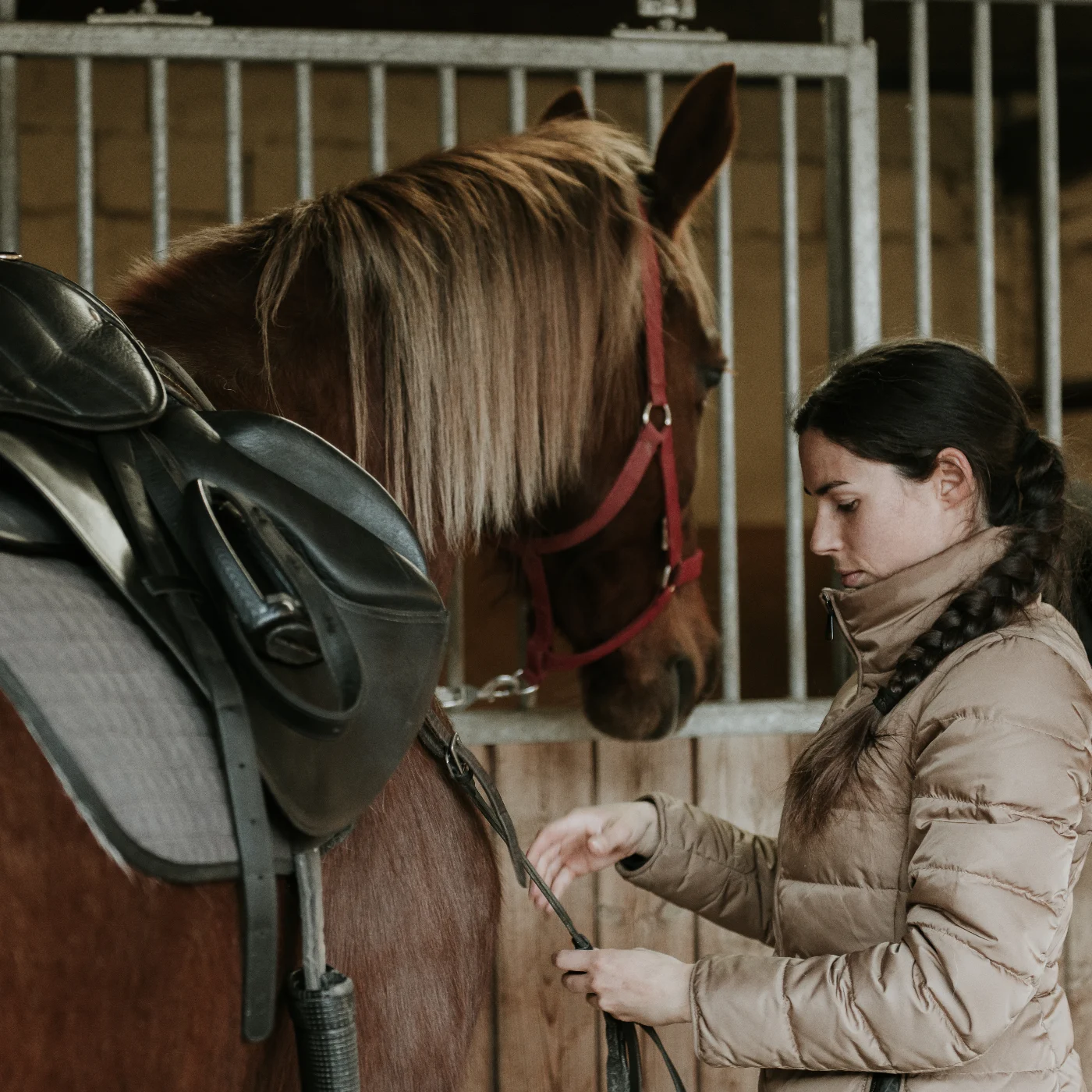Horse ownership is a huge responsibility. There are many expenses involved, their care is time-consuming, and it can sometimes be hard to find the motivation to get out to the barn or field where your horse lives when the weather is particularly bad or you are distracted by life.
Many people who live near horses but aren’t horse owners may notice that horses living in a field nearby don’t seem to be attended. You may wonder how long horses can be left alone.
In all but the most ideal living conditions that emulate a wild environment, horses rely on humans for daily care. Depending on your situation, some horses can thrive with minimal human interaction as long as they have access to food, water, and shelter. It is still necessary to check on them regularly to ensure there are no injuries, illnesses, or any missing horses.
Horses Should be Checked on Regularly to Ensure They Have Water
It is essential that horses have access to clean and fresh water at all times, whether that be from a trough or a natural resource, like a pond. If your horse’s water source is a trough or bucket, the horse and their water will need to be checked at least every day and sometimes twice daily in hot conditions.
Making sure there is a sufficient amount of water available to your horse, and that it is clean is important. The water can easily become contaminated from horse droppings ending up in the water, or small animals such as birds or mice drowning in it. In these cases, the horse water trough will need to be emptied, scrubbed and refilled to prevent the horses who use it from getting sick.
If horses are alone and the water gets too gross, the horses are likely to stop drinking from it, which can lead to dehydration. Some horses also have a tendency of knocking over their water buckets, and some have even been known to climb into a large trough. This can cause damage to the trough, or worse, injuries to the horse. If your horse has access to a natural water source, it is important to check that it is safe for them to drink from, and does not contain anything that will make them sick.

Check Horses Daily to Confirm Access to Food
Some environments provide enough forage, such as pasture grass, for horses without any additional feed. However, most horses will still require some added feed options, particularly in the winter when a lot of the grass has died or there is snow on the ground. Typically, this means not leaving them alone but instead supplying them with hay, but could also include grain and/or supplements, depending on the horse.
Horses that need the additional food must be fed regularly. Horses will gorge themselves on whatever feed is put in front of them, so even if your plan is to leave out multiple days worth of food at a time, they are likely to try to eat it all in one go. Most pastured horses tend to do the best when they are fed every day or two. Horses that primarily live in stalls should be fed at least twice a day.
Horses in Stalls Shouldn’t Be Left Alone for More than 12 Hours
If your horses live inside a stall, their stalls need to be cleaned daily. Horses in stalls shouldn’t be confined without access to food or room to exercise for more than 12 hours.
Keeping horses in stalls that are not mucked out regularly is detrimental to their health. If left uncleaned, the soiled stall bedding is prone to ammonia, bacteria, and mold, all of which can lead to respiratory issues for the horses, as well as any people who enter the stall.
Standing in wet and soiled bedding for an extended period of time can also cause hoof problems, such as thrush, which thrive in wet and damp environments. In addition to the regular cleaning, stripping the stall periodically will help prevent ailments as well.
Horses Can’t Be Left Alone Due to Potential Injuries and Illness
You can create the safest field or stall around, but if there is a way to get injured, a horse will probably find it.
It is very important to check on your horses daily to ensure none of them are suffering from any injuries. A horse can get caught in a fence, get kicked by a pasture-mate, or get tangled in a blanket and panic, among countless other scenarios. Freak accidents can happen at any time, and the quicker any injuries are caught and treated, the better. The last thing you want is for a horse to be left suffering for an extended period of time.
Colic is one of the most common ailments among horses, and it is always best to catch it as soon as possible. Diagnosing and treating colic, as well as other illnesses, early is more likely to end with a positive outcome. If the symptoms are not noticed early enough, it can be fatal to the horse. This is another reason why it is so important to check on horses regularly. It is also good to be aware of what their normal behavior looks like, so if they are acting out of the ordinary, you will be able to pick up on it right away.
Final Thoughts on Knowing How Long you Can Leve a Horse Alone
Ultimately, think of horses as requiring more daily interaction than the average cat, but not quite as much as a dog needs.
As long as horses have access to necessities, such as food, water, fresh air, and space to move and you are able to take a look at them once or twice a day, most horses will get along just fine.
Horses with a self-refreshing water source like rivers, creeks, springs, or ponds and ample grazing on nutrient rich grasses can be left alone for several days, while horses in stalls should not be left alone for more than 12-18 hours.
Of course, some horses need more attention from people than others, and some may even need less. It is a good idea to check on horses at least a couple of times a day just to be sure they are all right and for your own peace of mind.
